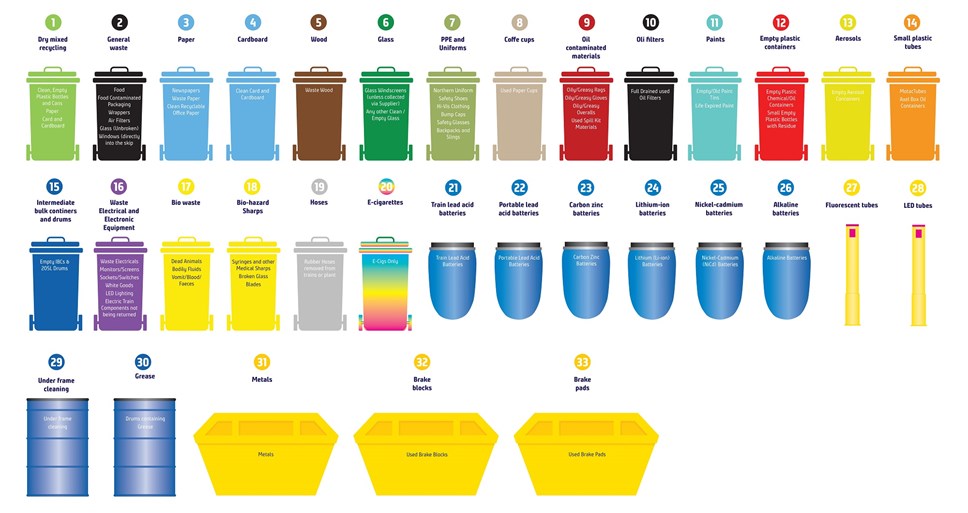Northern is now segregating waste products across its operations into 33 different specialist categories.
The train operator – which manages 467 of the stations on its network, has five ‘TrainCare Centre’ depots across the region and has support staff in multiple office locations across the North of England – already re-uses or re-cycles 70% of all waste generated by its operations.
The 33 different categories are:
| 1. Dry mixed recycling | 12. Oil contaminated materials | 23. Fluorescent tubes |
| 2. General waste | 13. Oil filters | 24. Bio waste |
| 3. Paper | 14. Paints | 25. Bio-hazard sharps |
| 4. Cardboard | 15. Empty plastic containers | 26. Hoses |
| 5. Wood | 16. Aerosols | 27. E-cigarettes |
| 6. Glass | 17. Small plastic tubes | 28. Train lead acid batteries |
| 7. Metals | 18. Under frame cleaning drums | 29. Portable lead acid batteries |
| 8. Brake blocks | 19. Intermediate bulk containers and drums | 30. Carbon zinc batteries |
| 9. Brake pads | 20. Grease | 31. Lithium-ion batteries |
| 10. PPE and uniforms | 21. Waste electrical and electronic equipment | 32. Nickel-cadmium batteries |
| 11. Coffee cups | 22. LED tubes | 33. Alkaline batteries |
Mike Roe, safety and environment director at Northern, said: “Eliminating waste is always our primary objective – but when that’s not possible, we aim to re-use or recycle as much as we can.
“The 33 different recycling strands now in-use throughout our business allows everyone across our near 7,000-strong workforce to play their part in support of our environmental mission.”
In 2022-23, Northern processed 6,458 tonnes of waste. Of that, 2,670 tonnes were recycled, 1,996 tonnes were re-used, 1,660 tonnes were incinerated (generating energy from waste) and just 132 tonnes went to landfill.
